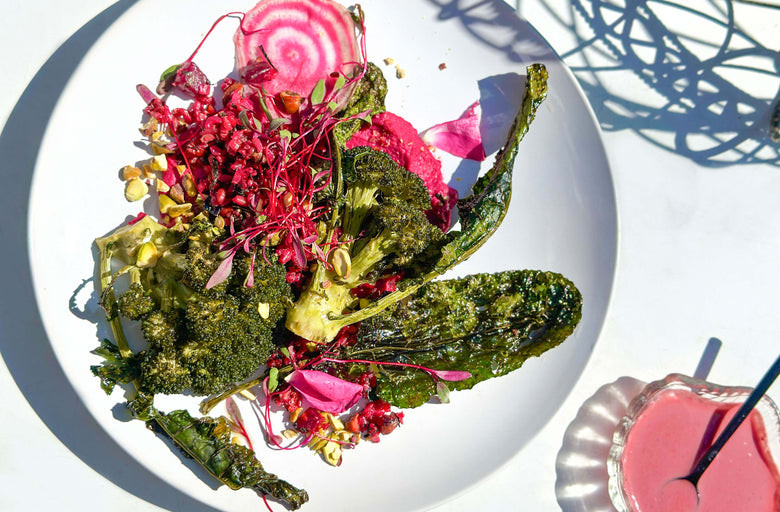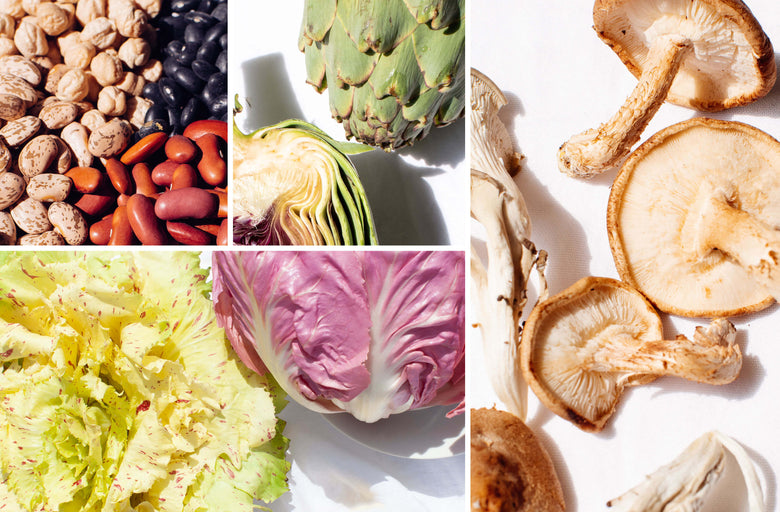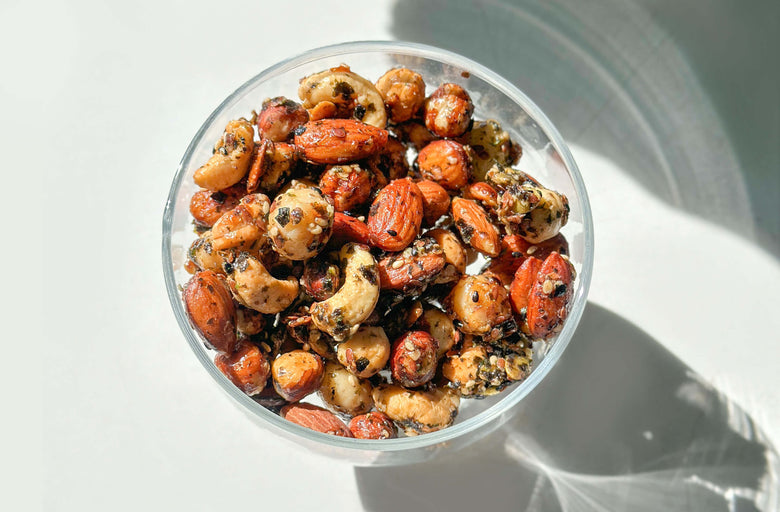You’ve probably heard the saying, “everything in moderation.” You’ve probably also heard that it’s possible to have “too much of a good thing.” Both are true when it comes to sugar, which has long had researchers, nutrition experts, and wellness-conscious consumers buzzing.
So which is it: a perfectly natural substance that can be consumed healthily, or the cause of weight gain and lifestyle illnesses like heart disease and diabetes, a vice to be avoided at all costs? The truth is—both, again. Although health organizations have thrown out general guidelines on how much sugar you can safely consume, the real answer is a bit more complicated, and requires thinking beyond the number on the nutrition label and considering things like the source of the sweetness and the foods you pair it with. Let’s dig deeper.
What Is Sugar?
Sugar is a type of naturally occurring carbohydrate that has been consumed for thousands of years. In fact, research suggests that certain varieties of sugarcane—a plant used to produce table sugar—have been cultivated since prehistoric times (1).
Chemically speaking, there are actually several different types of sugar, each of which differs based on its structure and the specific compounds that it contains. However, sugars can be grouped into two basic categories: monosaccharides and disaccharides.
Monosaccharides are a type of simple sugar that contain a single molecule, including glucose, fructose, and galactose. Disaccharides are compound sugars composed of two monosaccharides bonded together. Sucrose, lactose, and maltose are three common examples of disaccharides (2).
When you eat carbohydrates, your body breaks them down into simple sugars like glucose, which is used to power all the cells throughout the body. Glucose is also the brain’s primary energy source. Although the brain accounts for just 2 percent of total body weight, it requires the most glucose-derived energy of all the organs in the body (3). Without adequate glucose, hypoglycemia—or low blood sugar—can set in, causing symptoms like low energy, brain fog, shakiness, and moodiness (4).
Sources of Sugar
When it comes to sugar in the diet, there are many more factors to consider beyond the number noted on the nutrition label. In particular, two of the biggest key points to consider are where your sugar is coming from and whether it’s a natural sugar or an added sugar.
As the name implies, natural sugars are found naturally in foods like fruit. Added sugars are added during the processing or preparation of foods and beverages. It is important to focus on “added sugars” or “free sugars” in your meal, versus overall grams of sugar, since these are the sugars that aren’t in nature’s whole food form.
The natural sugars found in fruit are balanced by the presence of beneficial compounds like vitamins, minerals, and antioxidants. Fruit is also a rich source of fiber, which is a type of indigestible carbohydrate that can slow the absorption of sugar in the bloodstream to keep blood sugar levels from spiking or crashing. To keep blood sugar stable over longer periods, it is important to remember the overall carb-to-fiber ratio of your meals. An ideal carb-to-fiber ratio of 5:1.
Other natural sweeteners like honey or maple syrup also offer added benefits over heavily processed and refined sugars. These sweeteners also have a lower glycemic index, meaning that they won’t raise your blood sugar levels as quickly as regular sugar (8). Honey, for example, is brimming with antioxidants and possesses powerful anti-inflammatory, antimicrobial properties (5). Similarly, maple syrup is rich in disease-fighting antioxidants and minerals like manganese and zinc (6, 7).
Refined sugar sources found in processed foods, sports drinks, and bottled salad dressings
on the other hand, bring little to the table apart from extra sugar and calories. The added sugars found in these foods are digested rapidly by the body, causing blood sugar levels to peak and then plummet. Not only does this leave you feeling even hungrier than before, but it can also make you cranky, moody, and unfocused.

How To Sweeten Safely
Health organizations have made several different recommendations regarding added sugar consumption. The American Heart Association, for instance, advises limiting added sugar intake to 25-36 grams per day for women and men, respectively (9). Meanwhile, the World Health Organization recommends restricting the intake of free sugars to less than 10% of total daily calories (10). On a typical 2,000 calorie diet, this translates to about 50 grams of added free sugar per day.
While these recommendations are a great starting point, they are also overly simplified and don’t take other factors into account, such as the source of the sugar and the other foods that it’s paired with in your diet. Enjoying a natural sweetener like dates or coconut sugar with a good source of fiber and protein—like in a Sakara muffin made with nutrient-dense almond flour—will not elicit the same effect as refined sugars combined with other high-carb foods.
On average, a typical day of Sakara meals contains just 9 grams of added sugars, which is far below the amount recommended by most health organizations. Additionally, the sugars that are used are from food-based, low-glycemic sources like honey, dates, coconut sugar, and maple syrup. Not only do these natural sweeteners offer added health benefits over refined sugars, but they also provide important nutrients like vitamins, minerals, antioxidants, and polyphenols.
What’s more, Sakara also creates meals that help maintain steady blood sugar levels by optimizing the overall carb-to-fiber ratio of each recipe. This can help slow the absorption of sugar in the bloodstream while also supporting satiety to keep you feeling your absolute best.
Key Takeaways
- Sugar is a type of naturally occurring carbohydrate present in a variety of foods.
- Natural sugars are found in ingredients like fruit and milk whereas added sugars are added to a product during its processing or preparation.
- Although health organizations recommend limiting the amount of added sugars in your diet, it’s also important to consider the source of the sugars in your diet.
- While heavily processed and refined sugars offer little to no benefit in terms of nutrition, the natural sugars found in foods like fruit, honey, maple syrup, and dates are offset by the additional nutrients and health benefits that they have to offer.
- Pairing natural sweeteners with meals rich in fiber and protein can also slow the absorption of sugar in the blood to minimize any negative effects.
- As with all things, balance is key and it’s best to focus on following a nutritious, well-rounded diet rich in a variety of healthy ingredients rather than individual nutrients.






